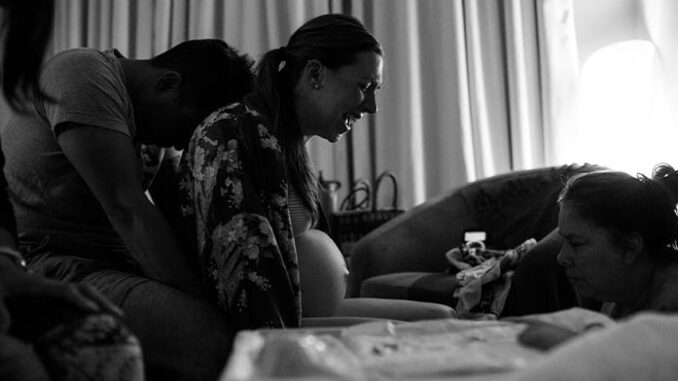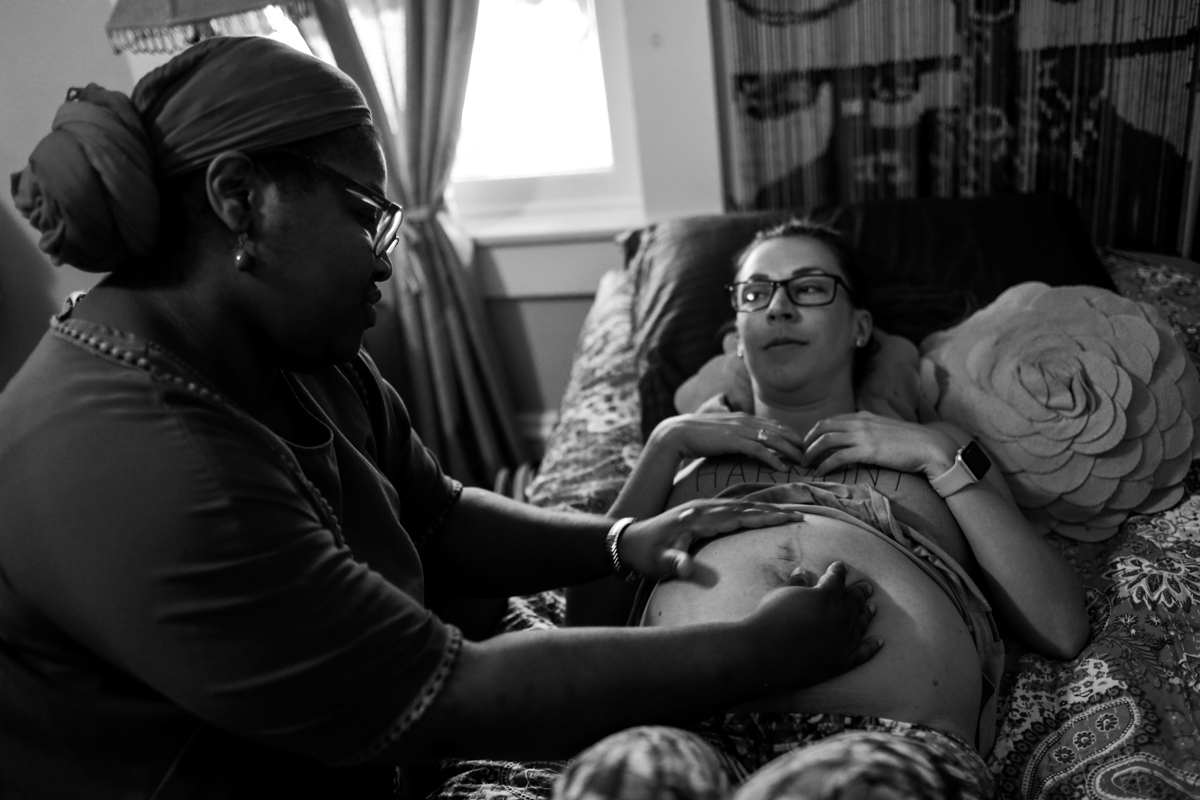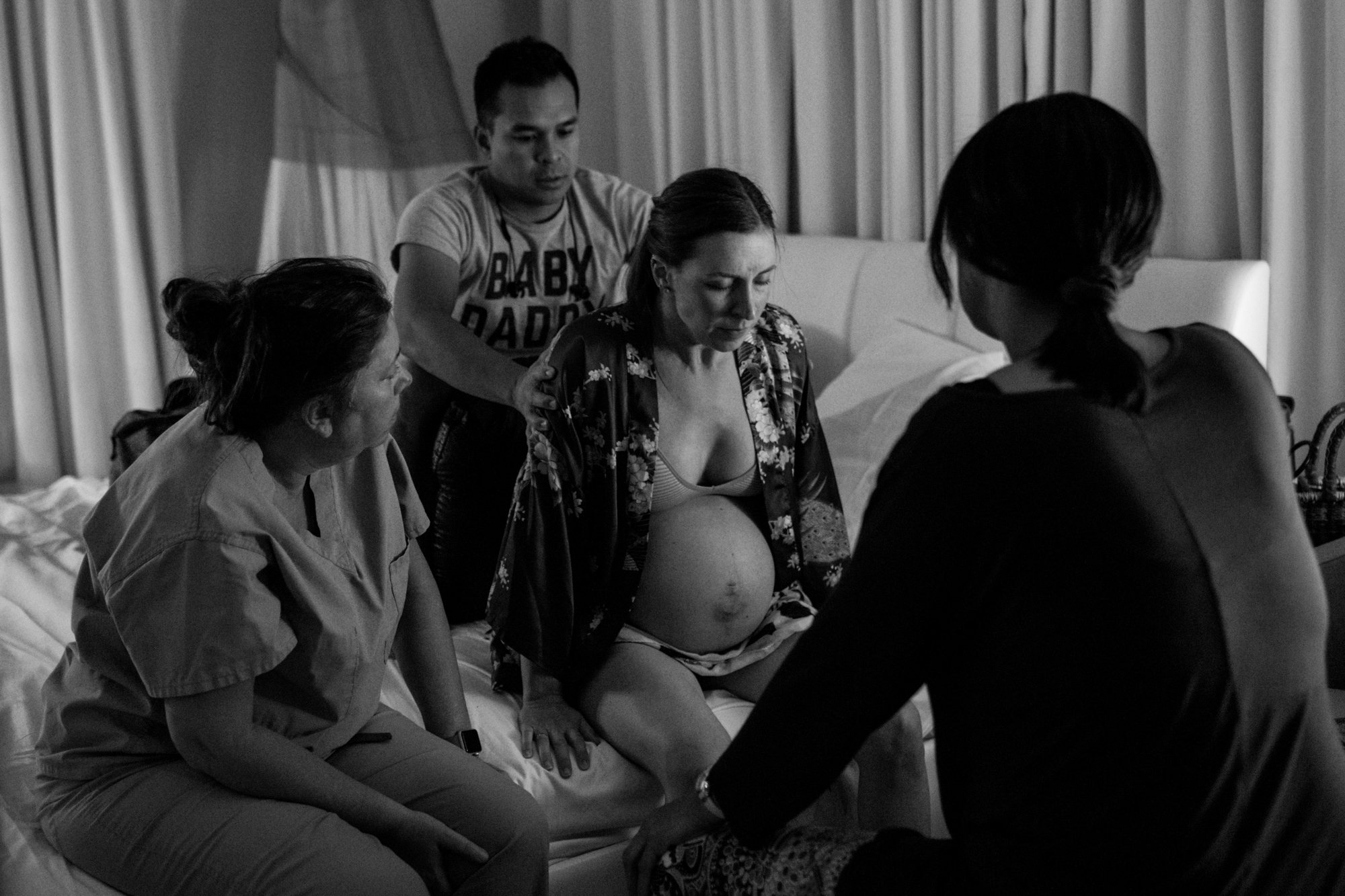
PHOENIX – When Katrina Huynh gave birth for the first time four years ago, she chose a modern tradition – a local hospital. But she chose a Phoenix birthing center when her daughter was born in October.
Huynh, an executive at a health-insurance company in Arizona, said it was an unconventional and, for her, perhaps surprising choice.
“The first time, I had a really great OB (obstetrician). It was actually a really hard process to go to a birthing center because I liked him so much,” she said. “It was almost a little bit scary, switching to the birthing center, especially coming from someone who is very science-based, medically based – that’s my education, that’s my career.”
But Huynh became convinced it was the right move. She was seeking a more “naturopathic path” after she became pregnant again. She’s happy she did.
“The prenatal care was amazing,” she said, speaking of the team of women who helped her through her pregnancy. “It was nice to have that knowledge there.”
Huynh is among a small but growing number of women who rely on midwives to assist with births at home or a center rather than on medical personnel at hospitals. She has the perspective of experiencing childbirth at a hospital and a birth center.
Hospital births still outnumber out-of-hospital births, accounting for less than 2% of U.S. births in 2017, but families who choose the help of a midwife do so when women are at less risk of complications, are able and willing to manage the pain of labor and seek a more organic, intimate experience around pregnancy and childbirth.
Huynh and her midwife, Jude Melton, who owns Sunrise Midwifery, discussed some key issues about midwives in the U.S. Their views are supplemented with information from the federal Centers for Disease Control and Prevention and other health organizations.

More parents are returning to pre-World War II birth procedures
Before 1945, most births took place at home, but less than three decades later, about 90% took place at hospitals, according to the National Center for Biotechnology Information. Still, for three decades, the percentage of births attended by certified midwives has risen nearly every year, according to the American College of Nurse-Midwives.
Childbirth as a natural process that doesn’t need medical intervention
“Hospitals are for emergencies,” Melton said. You don’t go to the hospital to hang out. You go to the hospital because you’ve got something wrong, something that needs immediate attention. We can move to the emergency setting if we need to, but we don’t have to start there.”
Melton stressed that some pregnancies do need hospital oversight – older mothers, those who have had complications during pregnancy or those with such conditions as diabetes – and that midwives need to know whether a mother and child need to move to an emergency setting. But overmedicalization of pregnancy and childbirth in the U.S. has caused women to see these things as inherently dangerous or risky, and to believe that hospitalization is always a necessary part of the process, Melton said.
“Childbirth is not an emergency. Pregnancy is not an emergency. Both of these things are natural processes for women,” she said.

Midwives maintain that labor pain can be managed
Huynh said her midwives took a holistic approach to childbirth, and gave prenatal care that was focused heavily on preparing her body for natural labor.
“I wanted my body to be able to actually do this on its own this time,” she said.
Huynh said that the actual birthing portion of her labor at the birthing center hurt worse than at the hospital because she was pushing for 2½ hours without a pain-blocking epidural. (She had a partial epidural four years ago when delivering her son.)
“It’s just nice to know that you don’t have to rely on the medical devices or the drugs to get through the whole entire process, because I think we’ve become a little bit dependent on those factors,” Huynh said. “I think that women need to know that there’s more options.”
